In this article: Learn how to stop the itch from mosquitoes, fleas, and other bugs with these natural remedies for bug bites.
When the weather is nice, we all like to go outside. Whether you are spending time in your garden, camping, hiking, or just relaxing in the sun or shade, bugs can be a big pest!
This site contains affiliate links. If you make a purchase using one of these links, I may earn a commission. Please see my disclosure page for more information about cookies collected and our privacy policy.
When the mosquitoes strike, what natural remedies can you reach for to cool the itch?
First let’s talk about what causes bug bites to itch in the first place.
Why Do Bug Bites Itch?
When a insect, such as a mosquito bites, it also injects some of it’s saliva into your body. This triggers an immune response by your body to protect itself from this foreign substance.
This is somewhat similar to an allergic reaction, and it causes your body to release histamines as part of this immune system response.
These histamines are what cause the inflammation, swelling, and itchiness.
The more you scratch the more inflamed the area will get and this will cause a cycle of scratching causing bites to itch even more.
But instead of reaching for over the counter medicines, why not try some natural remedies for bug bites to help reduce the inflammation and reduce the itch.
13 Natural Remedies for Bug Bites to Reduce Itch and Inflammation
Prevention is always better, so if possible try and reduce the biting insects in your home and yard to prevent bug bites in the first place.
Check out this article on 11 Essential Oils to Repel Bugs and Pests for more information on how to do this.
But when prevention doesn’t happen, use one of these 13 natural remedies to reduce the itch and swelling caused by bug bites.
Lavender Essential Oil
Just another thing to add to the list of things this powerhouse essential oil can do, lavender essential oil can also help calm inflammation and itching of bug bites and stings.
In her book The Complete Book of Essential Oils and Aromatherapy, Valerie Ann Worwood recommends putting neat lavender on insect bites.
If you don’t feel comfortable applying the oil undiluted you can dilute lavender in a carrier oil first.
Plantain
Plantain is my go-to natural remedy for bug bites, especially if I am on the go. You can find this amazing herb growing almost everywhere, and it’s often mistaken for a weed.
You can make a poultice with the herb by grinding it with a little water, but I find it easier to simply chew up a few leaves then place the macerated leaves on the affected area.
It’s simple, easy, no fuss, and needs to no special tools!
Basil Leaves
Similar to plantain, you can also use basil leaves in the same fashion. Chop up your basil leaves (or chew them) and place them on the affected area to relieve itchiness!
Basil is easy to grow- and can be grown in pots, indoors, or in the garden- you can learn more here:
If you don’t have fresh basil, you can mix dried basil with hot water to make a tea. Allow it to cool before applying to your skin.
Basil essential oil can also be used.
Related Reading: How to Make Your Yard Mosquito Free- Naturally!
Chamomile Tea
Chamomile tea has lots of anti-inflammatory properties that make it a great choice for reducing the swelling associated with bug bites.
You can use make your own chamomile tea with fresh chamomile or purchase a premade tea.
You can even make yourself a cup of tea to drink and relax and use the tea bag for the bug bites.
Read more about all the benefits you can get from chamomile tea: 12 Amazing Benefits of Chamomile Tea
Jewelweed
Jewelweed is an amazing home remedy for itchiness! This is a lesser known plant, and you might not be as familiar with it as you are with plantain or basil, but if you happen to have jewelweed growing in your area, you should definitely take advantage.
Another benefit of jewelweed- it’s great for stopping and preventing poison ivy! I use it, together with a few other of these remedies in my Poison Ivy Salve.
Learn more about Jewelweed and some ways to preserve it over on Reformation Acres.
Witch Hazel
Witch hazel is an extract made from the bark and leaves of the witch hazel shrub. It is a natural astringent and is very soothing to the skin. It will soothe your bites and help reduce the pain and swelling that comes along with many insect bites.
Pure witch hazel extract is the best choice to use. You can use it on its own by simply dabbing a cotton ball dipped in witch hazel on your bites.
You can also use witch hazel as a base for herbs. I have infused witch hazel with plantain with great results when it comes to bug bites.
Here’s a quick tutorial on infusing witch hazel with herbs.
Tea Tree Oil
Tea tree essential oil is another essential oil that can help reduce the itch and inflammation associated with bug bites.
Tea tree oil is well known for its anti-inflammatory, anti-bacterial, and anti-swelling properties.
Tea tree oil can be used for all types of bites and stings. This one should not be used undiluted so be sure to dilute in a carrier oil such as coconut oil first.
Aloe Vera
Your aloe plant is for more than just burns! Aloe Vera has anti-inflammatory and antiseptic properties and can help reduce the pain, swelling and itching associated with insect bites.
Aloe is very cooling to the skin, which helps with swelling as well.
Aloe plants are super easy to grow- in fact I have one that, even after being ignored for a year (really, I think I watered it ONCE this year), is still green and growing. Pick up one at your local nursery and place it in the corner of your kitchen, so it’s handy when you have a burn or a bite.
Ice
We all have ice right? Even at a picnic in the park you are likely to have a cold drink with you.
Ice cubes or cold packs can help reduce inflammation on the skin.
Cold will also help numb the pain and itching, giving you some relief.
Be careful putting ice directly on the skin for more than 5-10 minutes, use a barrier such as clothing or a washcloth if you need to leave it on longer.
Peppermint Leaves
Peppermint is a very cooling herb, and similar to plantain and basil, you can simply crush the leaves and apply them to the skin to cool and soothe bug bites.
Raw Honey
Raw honey has been used for thousands of years for dozens of ailments. It also has anti-bacterial and anti-inflammatory properties to calm bug bites.
Simply place a small drop of raw honey on the bug bite and let it work its magic!
Baking Soda
Baking soda is something we all have in our cabinets, but it has so many uses beyond cooking and cleaning.
Make a thick paste by mixing baking soda and water and apply to your bug bite. Allow it to sit for up to 10 minutes before washing off.
Baking soda may cause skin irritation, so discontinue use if that happens.
Apple Cider Vinegar
And finally apple cider vinegar. I have used apple cider vinegar for all sorts of things in my family- from kidney stones to hair conditioner, but we can also add it to the list of natural remedies for bug bites.
You can dab ACV directly on the bug bite or soak a cloth in ACV and allow it to sit on the skin.
ACV can also cause skin irritation, so try to keep it only on the bite and discontinue use if irritation occurs.
I keep many of these remedies on hand, in my medicine cabinet (essential oils, herbal extracts) or in my yard (basil, plantain, jewelweed), or in my kitchen (baking soda, ACV, honey, ice) at all times.
This allows me to soothe all bug bites quickly and naturally– for myself and my family. I also keep a container of this Homemade Healing Salve on hand, for when someone just can’t stop scratching to the point of opening the skin!

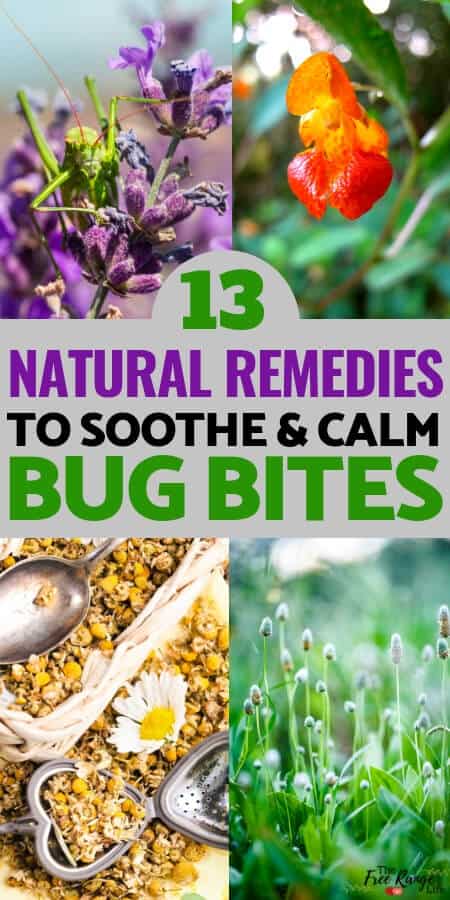
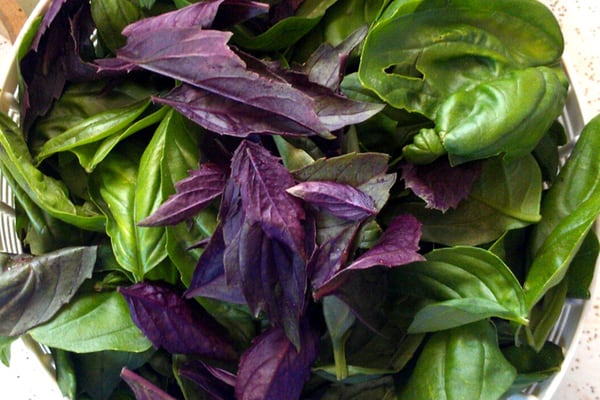
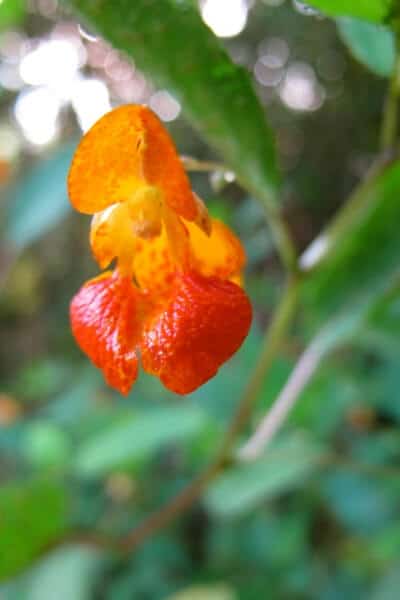

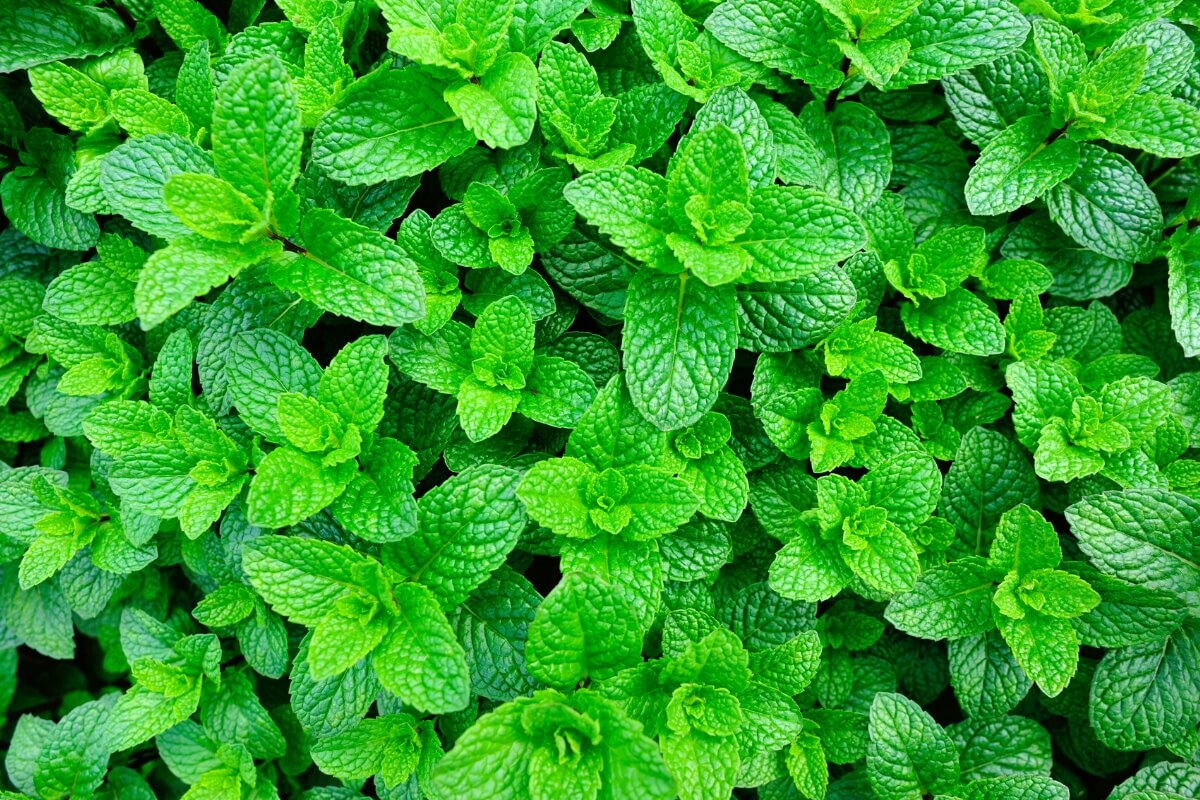
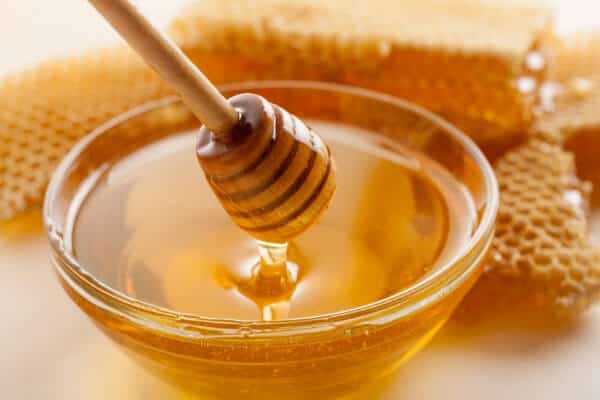


Awesome article. Needed some natural remedies as I use them for my grandkids
Something we do- the smell isn’t amazing, but we spray our 120 pound dog with a solution of water and apple cider vinegar, it helps as a natural bug be gone for even our non-human family members.